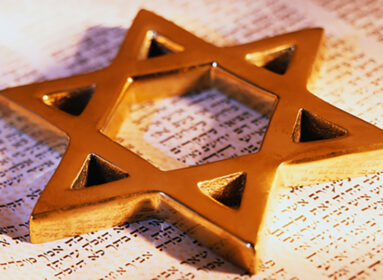
By Shlomo Riskin
This week’s parsha, Behar-Bechukotai, includes the commandment to count seven cycles of Sabbatical years leading up to the 50th Jubilee year of proclaiming freedom throughout the land. It is reminiscent of the biblical commands we read last week (Parshat Emor): “Count for yourselves [from the day of your bringing the barley ‘omer wave offering] seven complete weeks… you shall count fifty days…” from the day after our exodus from Egypt until the Festival of the first fruits (bikkurim), the festival commemorating the Revelation of God’s Torah at Sinai (Lev. 23:15-17).
What is the significance of this parallelism between the counting of the seven weeks between Passover and Shavuot and the counting of the seven sabbatical years leading up to the Jubilee year? What is the true message behind the daily count of sefirat ha’omer?
Three words express the concept of freedom: hofesh, dror and herut. Hofesh appears in the Book of Exodus (21:2) in the context of the Hebrew slave leaving the homestead of his owner; at the end of his sixth year of employ he becomes (hofshi hinam), “completely free.” The second word, dror, has just been cited in our present reading of Behar, in which “freedom” (dror) is to be proclaimed throughout the land on the advent of the Jubilee year. But the Festival of Passover, which celebrates our exodus from Egyptian servitude, is referred to by our Sages as zman herutenu, the time of our herut – a non-biblical word with Aramaic roots that connotes freedom. Why not use the biblical Hebrew words hofesh and dror in describing our Festival Viktor Frankl (1905-1997), author of From Death-Camp to Existentialism and founder of the branch of psychoanalysis called “logotherapy,” says the most essential human drive is the search for meaning. Freedom from enslavement must be linked indelibly with the individual’s belief that he/she is empowered to forge for a life dedicated to an important purpose.
Hence, our Bible begins with the creation of the world, positing that every human being is created “in the image of God,” with a portion of the Lord on High within the very essence of his/her being,” so that he/she becomes empowered to “develop the earth and preserve it,” to “perfect our imperfect world in the Kingship of the Divine” (Gen. 1:27; 2:7, 15 and the Aleinu prayer). By reliving God’s primordial week of creation during our weekly cycle of “working the world” for six days and resting in God’s presence on the seventh, we hopefully rekindle our task to perfect the world as God’s partners every single week. Hofesh in this context is our freedom of choice not to do whatever we wish but rather to choose good over evil, God over Satan, creation over destruction, eternal life in the generations we fostered, dedicated to Godliness over an existence spent in futile pursuit of vanity and emptiness.
The word dror is used to express the period of human perfection, redemption (ge’ula), described in our Jubilee year, when all slaves will be freed, when all debts will be rescinded, when everyone will be returned to their ancestral homestead, when all the needy of the world will be sustained by their communities. Dror is the purpose for which Israel and humanity was created; the society which Israel and humanity must recreate in God’s loving partners.
Our Sages refer to the time of our liberation from Egyptian enslavement as herut – from the Hebrew ahrayut, responsibility: the pathway toward the final accomplishment of universal dror, the responsibility of freedom; of accepting the formidable task of partnership with the Divine; of protecting our siblings (ahim) and every stranger (aher); of bringing the world to its aharit hayamim, the final stage of redemption, the Messianic Age.
Thus, as soon as we became free, we started to count; only for a free person is every day fraught with infinite possibilities of productivity and meaning. We count until we receive our Torah, which is our blueprint for the creation of a perfected world. Although the Bible commands that we count 50 days, we stop at 49; because we are still a work-in-progress; we still await the Messiah; we are not yet in the era of redemption. To be human is to be constantly striving – and growing, and improving.
A great Sage once said, “Pity the man who has achieved his ideal; he has no reason to continue living!” And so in the teachings of the sacred Zohar, the 15th rung of the ladder is where the loving Lord is to be found, Alone in glorious splendor.
Rabbi Shlomo Riskin in chancellor of Ohr Torah Stone and chief rabbi of Efrat, Israel.







 Southern New England Jewish Ledger
Southern New England Jewish Ledger













